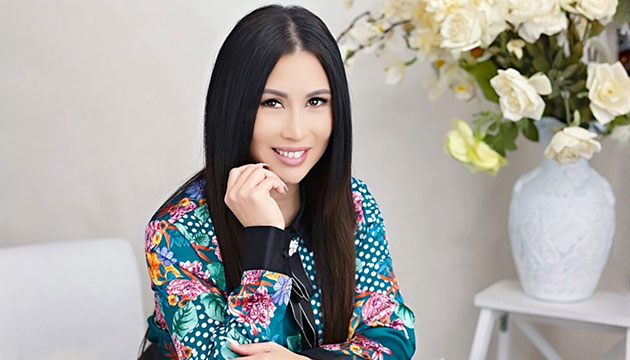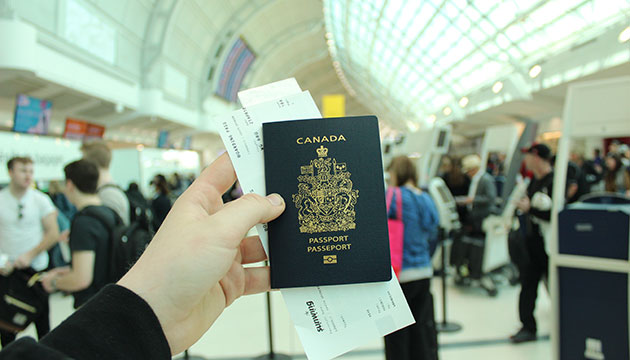Canada is among the few countries in the world that still accept high levels of immigration.
Canadians follow the rule of law, which makes Canada an ideal destination for prospective immigrants.
A sense of being secure is what attracts people to Canada.
But for many, Canada’s biggest asset is its diversity, which makes it such a model of civility, a model that is envied and admired all over the world. Prime Minister Pierre Elliot Trudeau’s single most important statement as he introduced his new policy of multiculturalism in 1971 may have been that “no singular culture could, or would, define Canada.”
In 1971, for the first time, the majority of new immigrants were of non-European ancestry — a precedent that has persisted ever since. The 2011 Canadian census recorded more than 200 different ethnic origins in Canada. In fact, the 2016 Census revealed that the Philippine-based Tagalog, not English or French, was the fastest growing language in Canada since 2011. One-fifth of the population had a mother tongue that’s not English or French with 64 % of Canadians claiming to speak Tagalog at home. In 2016, newcomers accounted for two-thirds of the country's population growth with more than half coming from Asia.
The Canadian Multiculturalism Act became law in 1988, making Canada the first country in the world to adopt multiculturalism as an official policy. Multiculturalism “takes into account the contribution made by other ethnic groups to the cultural enrichment of Canada.” It ensures that every individual is equal before and under the law and has the right to equal protection and equal benefit of the law without discrimination and, in particular, without discrimination based on race, national or ethnic origin, colour, religion, sex, age, or mental or physical disability.
The General Social Survey (GSS) of 2013 reported that the overwhelming majority of Canadians collectively share the values of human rights (92%), respect for the law (92%), and gender equality (91%). They also value diversity, tolerance, compassion and understanding.
As recently as March, 2017, the Canadian Studies Association reported that Canadians were increasingly comfortable with diversity. Intermarriage rates are growing – a strong index of racial and cultural integration.
|
|
Before 1971, Canada was defined primarily by the partnership of its two founding nations, France and Britain, and dominated by a bilingualism and biculturalism policy to preserve and safeguard the French and British contributions to Canada’s cultural enrichment. Multiculturalism, however, has so evolved that now Canadians define themselves as citizens of a multi-ethnic, multireligious society. While Canada would remain a bilingual nation, it would pursue multiculturalism rather than biculturalism. However, it does not mean encouraging enclaves of China town, Little India, Japan town or Little Vietnam wherever a particular group congregates or promoting ethnic practices that would substantially change Canadian society as it has been commonly known.
Multiculturalism respects the cultural freedom of all individuals and recognizes their ethnic contributions to Canadian society while respecting the founding nations’ Western culture and Christian beliefs. It blurs the effect of biculturalism because it encourages people to look at society and culture from the viewpoint of a globally infused perspective and develops the need to examine other cultures from a neutral, rather than a Western point of view. Learning to accept and live with many different cultures help Canadians understand each other and discourage hatred and violence. Learning one of the official languages helps them to adapt.
Excelling in Arts and Sports
It is widely recognized that immigrants are a source of diverse knowledge and experience. They increase innovation, creativity and prosperity in society. New residents enrich the cultural fabric by introducing new foods, music, traditions, beliefs and interests. Immigrants win proportionally more prestigious literary and performing arts awards. In sports, unlike the mostly all-white Canadian hockey teams, the ethnically diverse Toronto Raptors reflects Canada’s diversity. They united all Canadians in cheering them to victory in Game 6 of the NBA Eastern Conference Finals. Their names say it all: Kawhi Leonard, Marc Gasol, Serge Ibaka, Pascal Siakam, Fred Vanvleet and Danny Green plus the people behind the players: Raptors President Masai Ujiri and Head Coach Nick Nurse. They eventually dethroned the defending champions Golden State Warriors in another historic Game 6 on June 13th!
Other benefits of immigration as enumerated in a recent immigration study are:
- Ethnic restaurants, grocery stores and clothing stores add flavour and colour to communities, attracting new residents and tourists, and adding to community vitality.
- As more immigrants become settled, communities benefit from new cultural celebrations and more diverse cultural foods, music and arts at local festivals.
- Schools develop cross-cultural curriculum as in Alberta and Manitoba, which broadens all children’s understanding of the world and their neighbours.
- Communities earn a reputation as fun, festive and welcoming when their immigrant population is visibly celebrated and accepted.
- Skilled immigrants are a key source of information for Canadian companies in the new global economy.
- Immigrants can open doors to investment opportunities overseas and help attract foreign investment in Canada.
- Newcomers bring new education and work experience and an understanding of a global business context.
Our new multicultural identity is a precious legacy of liberal immigration policies which welcome people of diverse ethnic backgrounds to thrive in Canada. When the Canadian constitution was patriated by Prime Minister Trudeau in 1982, one of its constituent documents was the Charter of Rights and Freedoms. Section 27 of the Charter stipulates that the rights laid out in the document are to be interpreted in a manner consistent with multiculturalism. On November 13, 2002, the Liberal government of Prime Minister Chrétien designated, by Royal Proclamation, June 27 of each year Canadian Multiculturalism Day. Celebrate it every day.
By Eleanor R. Laquian for
The CFNet Editorial Board
Contact us at:










